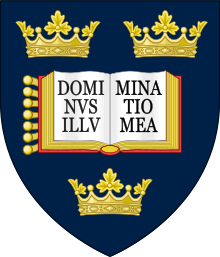David Hawkes (sinologist)
Appearance

David Hawkes (6 July 1923 – 31 July 2009) was a British sinologist and translator.
Quotes
[edit]- A translator has divided loyalties. He has a duty to his author, a duty to his reader and a duty to the text. The three are by no means identical and are often hard to reconcile.
- Preface to The Story of the Stone, Vol. 2: 'The Crab-Flower Club' (1979), p. 20
Inaugural Lecture, Oxford, 1961
[edit]- Inaugural Lecture delivered before the University of Oxford (25 May 1961), published in Chinese: Classical, Modern, and Humane (Clarendon Press, 1961), to which page numbers refer.
- We must make [the Honour School of Chinese] sufficiently broad and humane to satisfy those whose interests are not narrowly philological [...] by presenting Chinese literature as a part of our total human heritage; [and] we must always insist that the Honour School should be based on the study of literature.
- p. 27
- Our task is not the training of interpreters, nor the indulgence of exotic tastes, nor the revelation of some arcane Truth which the Orient possesses but we do not, nor the mastery of a sterile Asiatic scholasticism, but literature. If universities are not to teach language by means of literature—by means of books which are intrinsically worth-while reading, I for one do not want to be a university teacher.
- p. 27
Preface to The Golden Days, 1973
[edit]
- Introduction to The Story of the Stone, Vol. 1: 'The Golden Days' (Penguin, 1973)
- The idea that the worldling's 'reality' is illusion and that life itself is a dream from which we shall eventually awake is of course a Buddhist one; but in Xueqin's hands it becomes a poetical means of demonstrating that his characters are both creatures of his imagination and at the same time the real companions of his golden youth. To that extent it can be thought of as a literary device rather than as a deeply held philosophy, though it is really both.
- p. 45
- Many of the symbols, word-plays and secret patterns with which the novel abounds seem to be used out of sheer ebullience, as though the author was playing some sort of game with himself and did not much care whether he was observed or not. Chinese devotees of the novel often continue to read and reread it throughout their lives and to discover more of these little private jokes each time they read it.
- p. 45
- My one abiding principle has been to translate everything – even puns. For although this is...an 'unfinished' novel, it was written (and rewritten) by a great artist with his very lifeblood. I have therefore assumed that whatever I find in it is there for a purpose and must be dealt with somehow or other. I cannot pretend always to have done so successfully, but if I can convey to the reader even a fraction of the pleasure this Chinese novel has given me, I shall not have lived in vain.
- p. 46
Interview, 1998
[edit]- Interview with Connie Chan in Oxford (7 December 1998), as quoted in Style, Wit and Word-Play, ed. Chan Sin-wai, Tao Tao Liu and Laurence K. P. Wong (Cambridge Scholars Publishing, 2011), to which page numbers refer.
- It seems to me ridiculous to try to believe that Gao E sat down and wrote the last 40 chapters [of Dream of the Red Chamber]. I'm sure that's not true. Because you can see the way Gao E works. Gao E is trying I think just to reconcile – he's not altering, I think he doesn't feel he can alter what's been found. I think he tried to alter things occasionally to square one thing with another. If you're just making something up, forging something, you wouldn't be bothered about trying to reconcile inconsistencies. You'd make jolly well sure that they didn't occur.
- pp. 146–147
- I'd thought that what I'd like to do is to a translation where I don't have to think about academic considerations. Scholarly considerations. I'll just think about how to present – this is Penguins, after all – how to present this book in such a way that I do the whole of it but at the same time it's enjoyable for the English reader, if possible, and they can get some of the pleasure out of it that I got myself.
- p. 148
Quotes about Hawkes
[edit]- Hawkes brought to bear such a wide range of rhetorical skills, such penetrating insight into character, such finely honed dialogue, such superbly crafted versification; but more than anything, such a profound sense of humanity, such fun and exhilaration, such melancholy and wisdom. In it he succeeds in grasping to the full, and yet at the same time transcending, the sheer Chineseness of the work, making it into a real novel for reading, revealing it as a true masterpiece of world literature.
- The Times obituary (28 August 2009), summarizing Hawkes's achievement in translating The Story of the Stone, as quoted in The Routledge Handbook of Chinese Translation, eds. Chris Shei and Zhao-Ming (Routledge, 2017)
- You take well-warranted and judicious liberties to make things clear to your readers, & this is excellent, but not something we are allowed to do. And your dialogue is alive and in character, your verse easy and elegant. Some of those bloody poems studded with classical allusions and double meanings are untranslatable in full, but at least you convey the flavour & give readers an idea of what the poetizing game was like.
- Gladys Yang's letter to David Hawkes (July 11, 1977), now in British Library, commenting on Hawkes' translation of The Story of the Stone, as reported and quoted by John Minford in a Shanghai Seminar (March 2016)
External links
[edit] Encyclopedic article on David Hawkes (sinologist) on Wikipedia
Encyclopedic article on David Hawkes (sinologist) on Wikipedia
